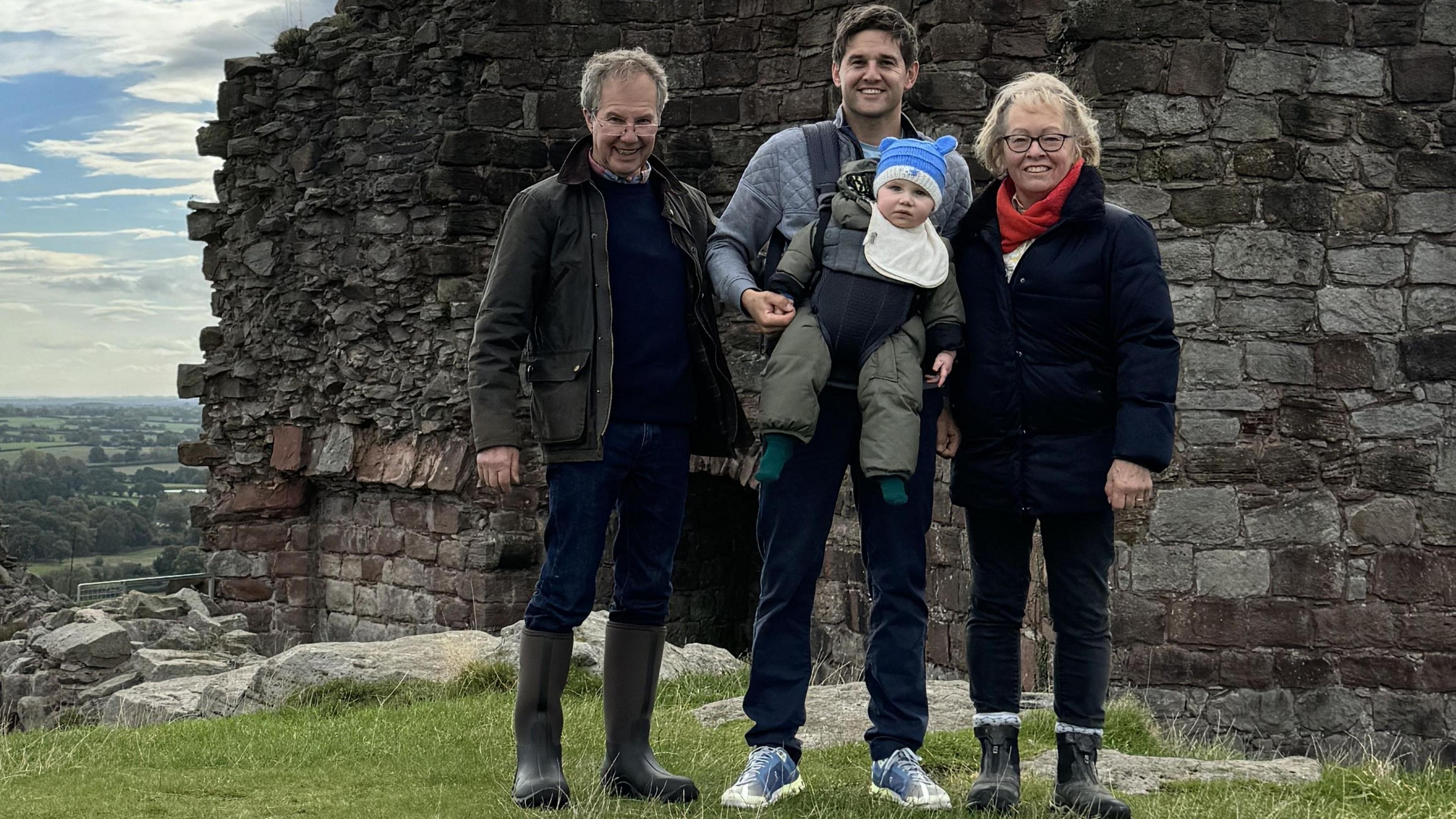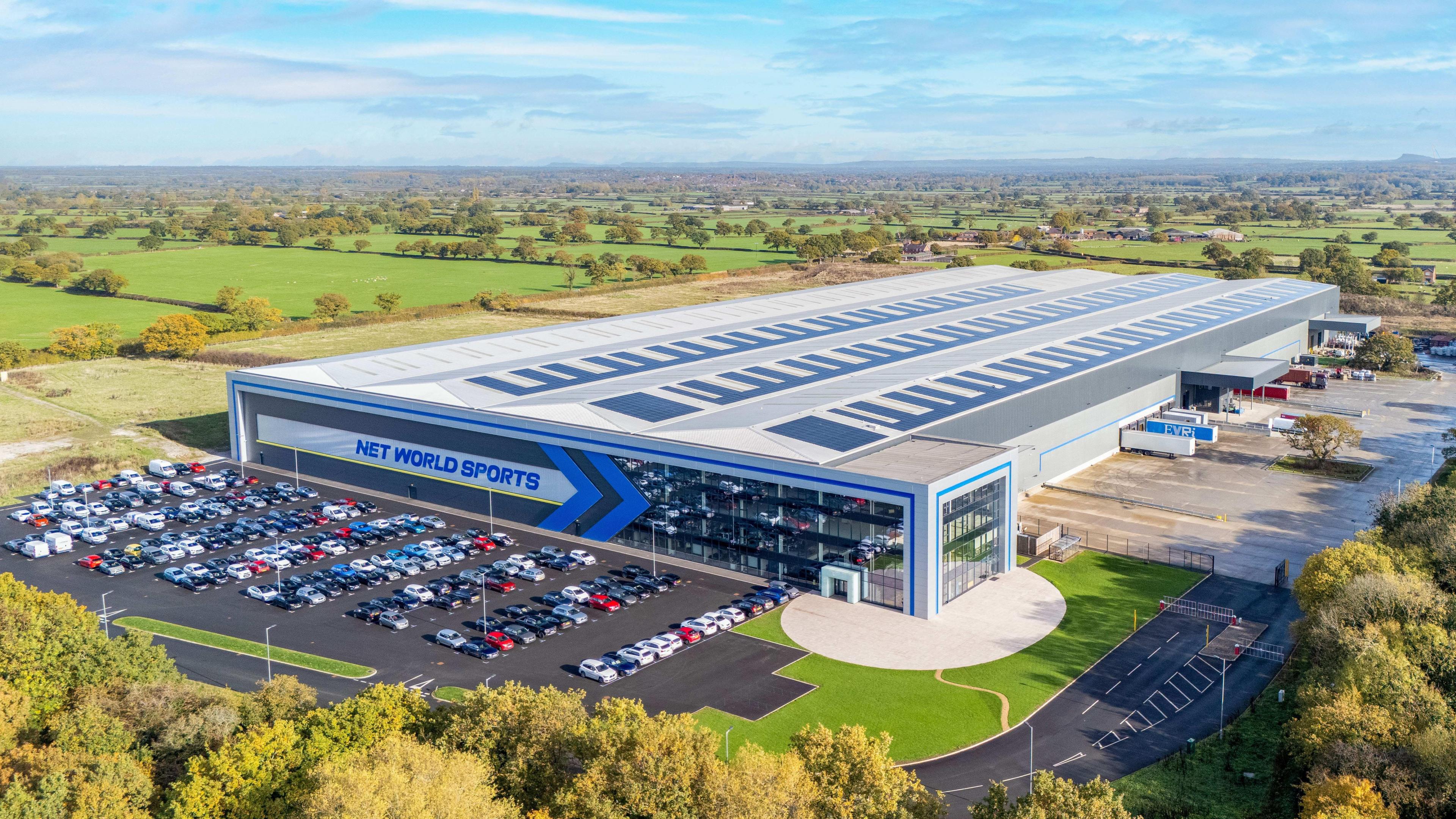'New inheritance tax rules will destroy family businesses'

Alex Lovén (centre) said new inheritance tax rules could force family firms to abandon growth plans and even relocate overseas
- Published
Sweeping changes to inheritance tax rules could destroy family businesses, an entrepreneur has warned.
Alex Lovén, founder of Wrexham-based Net World Sports, said his company could face bills in the "tens of millions" under upcoming reforms, making it "simply unaffordable".
The rules that come into force in April mean assets over £1m will effectively be taxed at a rate of 20% when passed on to relatives.
Tax experts say the changes are already altering behaviour, with some firms shelving expansion plans, while the Treasury insists reforms are fair and will fund public services, arguing reliefs currently benefit a small number of wealthy estates.
How family firms could be affected by Budget tax rises
- Published21 November 2024
How many farms will be affected by Budget tax rises?
- Published10 December 2024
"It zaps you of energy. Because what's the flipping point?" Mr Lovén said.
"You set off with nothing, you start at the very bottom, you work your socks off to build something. You don't do it to make a quick buck, but then the government comes along and pulls the rug from right under you.
"And it's all-destroying, really, because what is the point?"
While farmers have attracted much of the attention around inheritance tax reform following last year's budget, the changes will not be limited to agriculture.
They will apply to a wide range of family-owned firms, many of which have relied on full relief to pass companies between generations without triggering large tax bills.

Net World Sports pays around £1m in business rates for its site in Wrexham
Mr Lovén said the amount of inheritance tax being introduced was "so enormous" it could force businesses to change course.
"You suddenly go from planning to grow a business, to planning to defend the business from being taken away," he said.
He believes the changes contradict government calls for investment, and could remove the long-term economic benefit provided by multi-generational businesses.
Net World Sports, originally founded from Mr Lovén's family home in Shropshire in 2009, employs hundreds of people in its sports equipment business and pays around £1m in business rates.
Mr Lovén also thinks entrepreneurs could relocate, adding: "Why would you bother to do it in the UK? We're now seeing our attention turn to America because that is a place where they won't take it all from you.
"We're the biggest investor into Wrexham, but what is the point if success is penalised? Your country, your economy will never go forward."
What are the new inheritance tax rules?
Under the current rules, most trading businesses passed on after death qualify for 100% relief from inheritance tax.
This has allowed family-owned companies to move between generations without triggering large tax bills.
From 6 April, the first £1m of business assets will remain exempt.
But anything above that will attract an effective tax rate of 20%.
The government says the move will raise hundreds of millions of pounds for public services, but critics warn it could hit succession planning and long-term investment.
For a business valued at £5m, the current regime would allow it to be inherited with no inheritance tax.
But from April 2026 it will incur an inheritance tax bill of £800,000.

Alex Lovén said family-run businesses were the "ultimate definition of long-termism"
The impact will be "life-changing" for owners, said Andrew Evans, a tax partner at law firm Geldards.
"I spoke to one client who had saved up £15m to grow their business in a different direction," he said.
"They've decided as a result of these changes they can't be bothered."
Mr Evans warned that many owners are unaware of the implications, describing an "ostrich mentality" among small and medium-sized firms.
He urged business owners to seek advice and make a will.
The Treasury has said the changes could raise £520m a year, but Mr Evans questioned whether that was worth the potential impact on growth, adding: "Rather than spend money growing the business, owners will save money to pay a tax bill.
"Personally, I think that's disappointing and doesn't accord with the chancellor's pronouncements she's in favour of growth."
A spokesperson for HM Treasury said: "We are a pro-business government that has capped corporation tax at 25%, the lowest rate in the G7, we're reforming business rates [in England], have secured trade deals with the US, EU and India, and have seen interest rates cut five times since the election, benefiting businesses in every part of Britain.
"Right now, 53% of Business Property Relief - worth £533m - goes to just 158 estates.
"Our reforms will channel that funding into vital public services."

Huw Watkins said businesses had to plan their succession, but inheritance tax was not always the main consideration
Some founders have pursued other options to minimise tax and ensure the survival of their business.
The founders of management consultancy BIC Innovation, which is based in Bangor, Gwynedd, have sold the business to their staff.
Chief executive Huw Watkins said the decision was driven by a desire to keep the business rooted in Wales and give staff a stronger voice.
"The employee-owned model lent itself really well to us being able to ground the business in Wales, give our staff a stronger voice in how the business evolves, and act as an enabler for future leadership," he added.
Inheritance tax planning was not a major factor for BIC Innovation's founders, but Mr Watkins said tax incentives played a role because the employee-owned model avoids capital gains tax on the proceeds of a sale.
His advice to other founders was to begin succession planning early.
"The sooner you start, the more options you'll have," he said.
"Some will appeal more than others, but consider what's really important - whether it's legacy, giving staff a better voice, or other circumstances."
Related topics
More top stories
- Published8 hours ago

- Published1 day ago

- Published1 day ago
